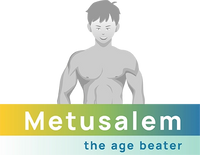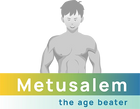Staying Active and Agile: Strategies for Maintaining Mobility in Older Age

Frequently Asked Questions
1. Why is mobility important in older age?
2. What causes the decline in mobility as we age?
3. What are effective strategies for sustaining mobility in seniors?
4. How does nutrition impact mobility in older adults?
5. What role do social engagement and mental health play in maintaining mobility?
As we age, maintaining mobility becomes essential for leading a fulfilling and independent life. It’s important not only for physical health but also for mental well-being. A decline in mobility can affect daily activities and overall quality of life. Therefore, understanding effective strategies to enhance and maintain mobility in older age is paramount. In this article, we will explore various practical approaches to help seniors stay active and vibrant, along with the Taurine health benefits that can support the journey of ageing gracefully.
The Importance of Mobility in Older Age
Mobility is a cornerstone of independence and self-sufficiency. It enables older adults to engage in social activities, perform daily tasks, and maintain their physical health. Here are a few reasons why mobility is crucial:
- Pursuing Activities: Essential for enjoying hobbies and socialising with friends and family.
- Physical Health: Regular movement helps to manage weight, reduce the risk of chronic illnesses, and improve cardiovascular health.
- Mental Well-being: Staying active has been linked to improved mood and cognitive function.
- Injury Prevention: Enhanced mobility can prevent falls, a common risk for the elderly.
Understanding the Decline in Mobility
Mobility can decline due to various factors, including physical, social, and psychological issues. Here are some common contributors:
- Aging Muscles and Joints: Natural wear and tear can lead to conditions like arthritis, making movement painful.
- Inactivity: Sedentary lifestyles can weaken muscles and decrease flexibility.
- Chronic Conditions: Diseases such as diabetes and heart conditions can limit mobility.
- Fear of Falling: Past injuries may lead to a reluctance to engage in physical activity.
Strategies for Sustaining Mobility
To combat the effects of aging and enhance mobility, implementing a multifaceted approach is essential. The following strategies are beneficial for older adults looking to stay mobile:
Regular Physical Activity
Engaging in regular physical activity is vital for maintaining mobility. Depending on the individual’s abilities, this can include:
- Walking: A simple yet effective way to stay active.
- Swimming: A low-impact exercise that is easy on the joints.
- Strength Training: Boosting muscle strength can lead to enhanced balance and stability.
- Flexibility Exercises: Activities like yoga or stretching improve flexibility and range of motion.
Balance and Coordination Training
Incorporating balance and coordination exercises into the routine can significantly enhance stability. Activities such as Tai Chi can be particularly effective. These exercises help to:
- Improve proprioception (awareness of body position)
- Enhance muscle control
- Reduce the risk of falls
Proper Nutrition
A nutritious diet plays a pivotal role in maintaining mobility. Key components include:
- Hydration: Staying hydrated is crucial for overall health and physical performance.
- Calcium and Vitamin D: Essential for strong bones; consider foods like dairy and leafy greens.
- Protein: Important for muscle repair and strength; incorporate lean meats, fish, and legumes.
- Antioxidants: Foods rich in antioxidants can combat inflammation and promote joint health.
Among the nutritional strategies, Taurine health benefits are worth mentioning. Taurine is an amino acid found in various foods and can play a role in maintaining muscle strength and function. As we age, ensuring sufficient intake of Taurine may support mobility.
Consistency and Routine
Establishing a routine around physical activity can significantly boost adherence. Here are some tips:
- Set Goals: Set realistic, achievable goals related to mobility.
- Track Progress: Keeping a journal can help monitor improvements over time.
- Find a Buddy: Exercising with a friend can enhance motivation and make activities enjoyable.
Make Use of Adaptations and Aids
In some cases, using mobility aids can enhance independence. Here are some options:
- Canes and Walkers: Help provide stability and balance.
- Grab Bars: Install in strategic locations like bathrooms for safety.
- Footwear: Invest in supportive shoes that are easy to wear and provide good grip.
Social Engagement and Mental Stimulation
Staying socially active is as important as physical health. Engaging with others can combat feelings of isolation, which may lead to a sedentary lifestyle. Activities to consider include:
- Joining Clubs or Classes: Classes focused on fitness, crafts, or hobbies can provide stimulation.
- Volunteering: Offering time to community projects can offer a sense of purpose.
- Regular Family Gatherings: Keep connected with loved ones to maintain emotional well-being.
Mindfulness and Stress Management
Mental health has a significant influence on physical health. Practices such as mindfulness and stress management can positively impact mobility. Here’s how:
- Meditation: Helps to reduce anxiety and stress.
- Breath Control: Focusing on breathing can enhance relaxation and improve circulation.
- Positive Thinking: Emphasising positive outcomes can motivate action and enhance resilience.
Consulting Professionals
Regular consultations with healthcare professionals can be beneficial. This includes:
- Physical Therapists: They can design tailored exercise programs.
- Dieticians: They provide nutritional advice that supports mobility and overall health.
- Doctors: Regular check-ups can help monitor health conditions affecting mobility.
Listening to Your Body
Encouraging autonomy is important, but listening to one’s body is equally crucial. Understanding when to rest and when to push is a critical balance. This involves:
- Acknowledging Limitations: Recognise and respect physical boundaries.
- Seeking Help When Needed: Do not hesitate to ask family or professionals for assistance.
The Power of Community and Support Networks
Building strong support networks can have a profound impact on mobility and overall well-being. Here are effective ways to cultivate community ties:
- Participate in Local Events: Engage in local activities that encourage physical and social interaction.
- Support Groups: Join or form groups focused on health, wellness, or hobbies.
- Online Communities: Leverage technology to connect with others with similar interests or experiences.
A Bright Future of Mobility Awaits!
Embracing these strategies can empower you or your loved ones to maintain mobility and boost overall well-being. By prioritising physical activity, engaging socially, consuming a balanced diet, and fostering mental health, one can significantly enhance their quality of life as they age. Remember, every small step counts when it comes to mobility. One must not underestimate the cumulative effect of consistent effort. Alongside these strategies, considering the Taurine health benefits may add another layer of support for muscle health. Take charge of your health and mobility today, and reap the benefits of an active lifestyle in your golden years!

